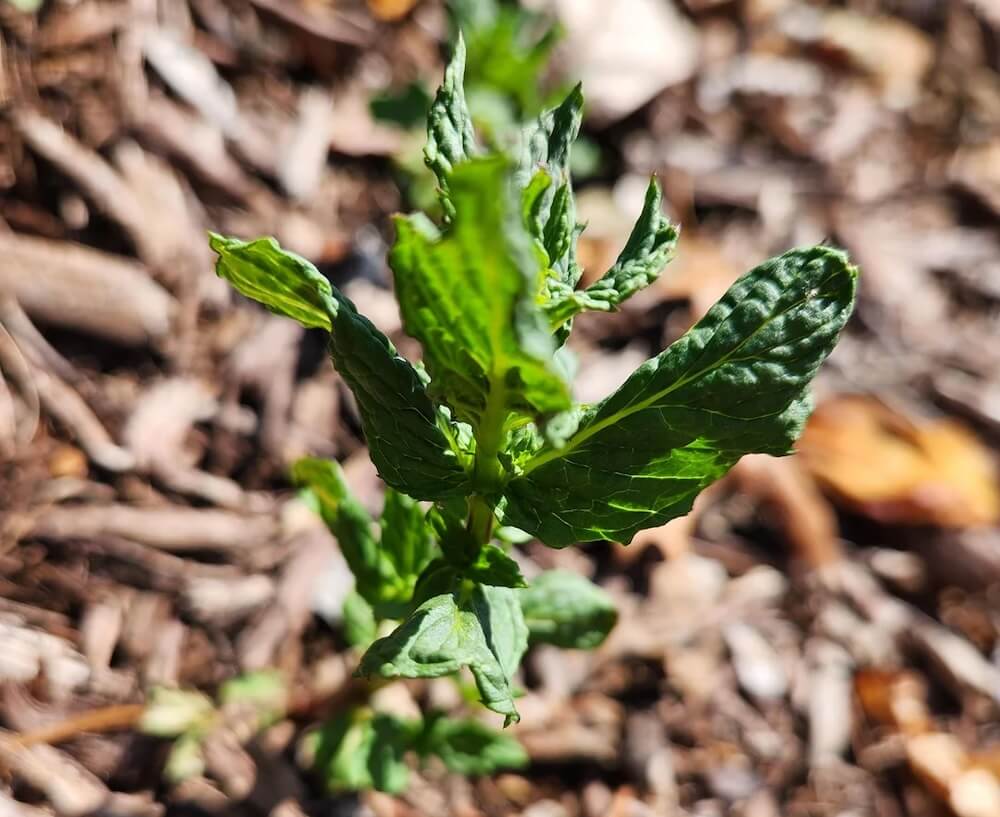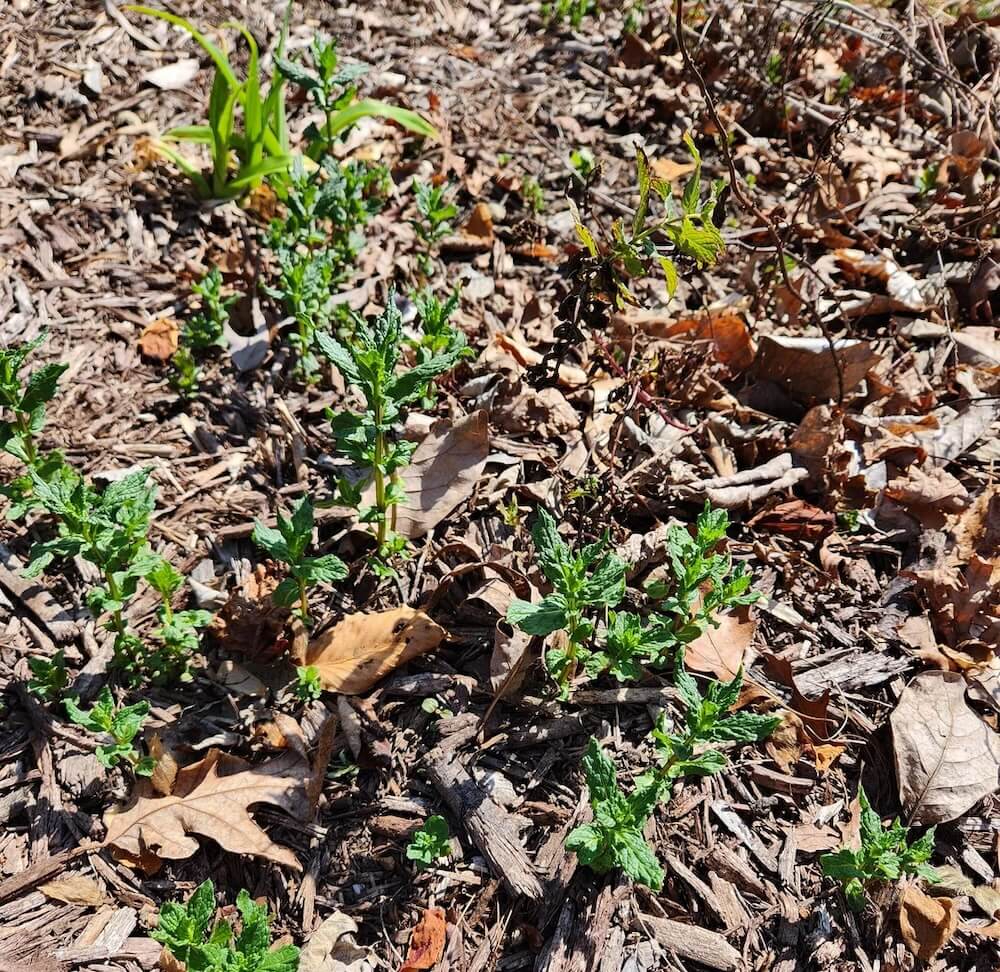When grabbing mint from the grocery store for your next culinary creation, you probably haven't considered just how problematic the plant can be.
One Redditor found that out the hard way after trying to grow their own supply of the versatile herb.


"Mint spreading, should I keep it or wipe it out?" they began a post on the r/gardening subreddit. They noted that they planted some last year near their front entrance, and they provided a picture of the kind they were trying to cultivate.
"It filled out and created a nice little bunch," they continued. "Then it got cold and it all died away. But we've had a few 70 degree days, and suddenly I see sprouts of it all over the place!"
Mint is a particularly hardy herb, able to withstand the kind of conditions that would be a death sentence for other plants. Not only that, but it can spread wildly and abundantly.
"I have several gardens, and my initial thought is to dig it up and spread it out," the Redditor said. "But with so much of it coming up, is that something I'm going to regret? Is it going to take over my gardens and take way too much work to maintain?"
The online community was almost unanimous in its assessment.
"It spreads with joy and abandon," one comment read. "Unless mint is a cornerstone of your religion, you will regret spreading it out."
"Planted mint once. Had to sell the house," another joked.
🗣️ What's the hardest thing about taking care of your yard?
🔘 Mowing the lawn 🏡
🔘 Controlling weeds 🌿
🔘 Keeping pests at bay 🐿️
🔘 I don't have a yard 🤷
🗳️ Click your choice to see results and speak your mind
"Dig up some and or [put] it in a pot on a paver, pull the rest," was one user's advice. "It will take over your yard if you let it."
While growing mint can definitely save you money on your weekly grocery shop, it's wise to do research before letting it loose in your yard. Keep it isolated to a pot, and whatever you do, don't allow it to spread to other areas of your garden.
This unfortunate incident serves as a reminder to be careful about what you plant in your garden. Invasive species, which mint can be, can quickly take over your yard and lead to work that you weren't anticipating. Gardeners have had similar issues with ivy and bamboo.
Native plant species, on the other hand, are less likely to be something you regret after a while. They are typically suited to local soil and weather conditions, meaning they can survive with little need for fertilizers and excessive water. They will also encourage the presence of a variety of pollinators, which are essential to global food production.
Join our free newsletter for easy tips to save more and waste less, and don't miss this cool list of easy ways to help yourself while helping the planet.









